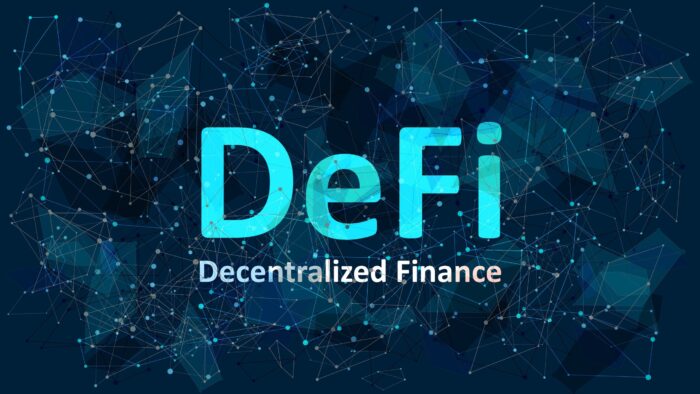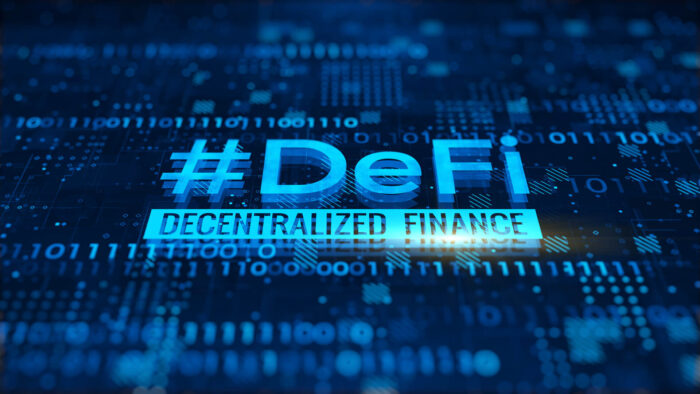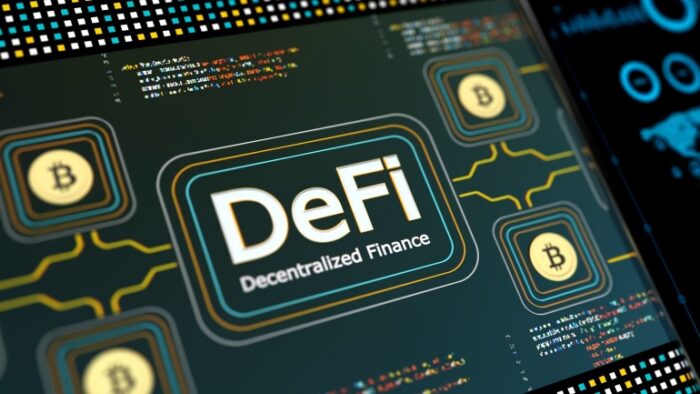
Money and related financial transactions have been around for as long as man has existed. But the environment of financial transactions is constantly changing. In the 21st century, there are many startups with creative ideas and technologies, including Blockchain and Decentralized Finance (Defi). The main goal of the revolutionary changes in finance is to ensure speed, efficiency, as well as exposure to the global Fintech domain and to increase the availability of financial transactions on a global scale.
There is no doubt that the adoption of DLT, especially Blockchain and decentralized finance, is reshaping the traditional world of finance. Nowadays, there are a number of categorizations of global financial transactions, fast and secure transactions, low transaction fees, modern economic trends in finance, etc.
Defi (decentralized finance) – introduction

Put simply, Defi can be understood as a modern monetary system designed on the basis of a public Blockchain. The DeFi sector is open finance that also has Blockchain-based components such as digital assets, protocols, decentralized applications, smart contracts, and more.
Many of us are aware of the existence of digital currencies such as Bitcoin or Ethereum and other growing digital assets, but in a broader sense many people do not know that their scope is fully open and that they are fully suitable for application development. The open finance mechanism is well on its way to creating massive networks with no or minimal involvement of centralized institutions such as banks, clearing houses, etc. The goals of the decentralized finance industry are relatively simple to understand.
- Providing an easy level of access to financial flexibility for ordinary people.
- Introduction of an open banking structure through decentralization.
Traditional finance versus decentralized finance

To some extent, decentralized finance (Defi) is a modern and advanced structure of pre-existing financing models. The basic operation, transaction flow and many other technical parameters affecting the final user experience are the same in both cases, but there are also some important differences.
- Operations within Defi are not managed by any centralized institutions and employees. The entire operating mechanism of this innovative financial sector is controlled by backend algorithms and smart contracts. These smart contracts are implemented as part of Blockchain technology, and the decentralized finance itself works with little or no human intervention.
- One of the fundamental advantages of DeFi is that they are based on aspects that were missing in the traditional financial system. Defi applications run on the potential of code transparency. This fact significantly facilitates audits and ensures trust among users. Because the DeFi architecture is open on a transparent ecosystem, users themselves can check and control the functionality of the transactions they intend to participate in.
- Blockchain-based decentralized financial applications run on the Defi environment to ensure global service availability for every user. The geographic location of the user is irrelevant here. Access to the networks and services offered by DeFi remains the same.
- Anyone with the appropriate knowledge and technological background can develop and use decentralized financial applications. Since there are no accessibility limits in this area, users can simply interact with smart contracts without any hassle.
- Decentralized applications are designed to interact with other popular DeFi products. This solution is conducive to creating a single, transparent and coherent financial ecosystem.
The main advantages of the Defi application

Traditional finance is burdened with huge human administration and operating expenses, but in the case of decentralized finance, the situation is completely different. There are no rigid rules and regulations here, and thanks to this, the DeFi sector becomes available to every user using faster and cheaper financial transactions. There is also no need to supervise the system by many people, as is the case in traditional finance. Here are some basic benefits of the DeFi:
- Defi is open to all to enter the financial system, regardless of race, caste, culture, wealth or geography. All you need is a mobile phone/computer with a stable internet connection. There are no restrictions related to permits and other rigid requirements. Defi makes it easy for users to explore this new world of digital finance.
- The algorithms on which decentralized finance is based enable developers to extend their scope by accelerating the integration of individual third-party applications. At the next level of adaptation, this innovative system will replace the financial models we know from the 20th century.
- Decentralized finance has increased the level of accessibility to the world of finance for many people who until now had no real opportunity to participate in the banking system. Blockchain is a public ledger and most Defi protocols work the same. In this way, the entire set of operations is completely available to the entire population. In this model, everyone has access to the same and complete transparency, which makes DeFi much better and more relevant than traditional finance, which lacks these attributes.
- Decentralized financial platforms keep your funds and finances under control. The person holding the assets at the smart contract address decides where they will be used. Instead of relying on manual interactions for lending or investment transactions, a smart digital contract does it for you. Moreover, no one can stop you from using the Defi protocol as the smart contract works independently.
Tytanid: Revolutionary Defi binary options trading platform

Considering all the above information, we recommend you to use the Tytanid protocol and start trading binary options. It is a fully decentralized platform available to everyone. Become a creator of binary options and contribute to already created markets by other users.













